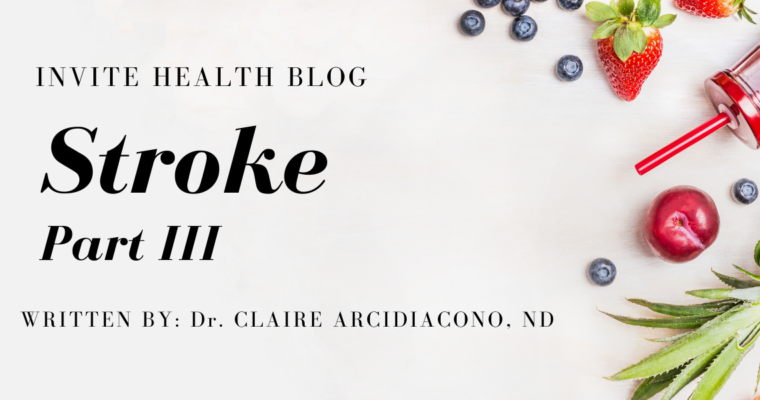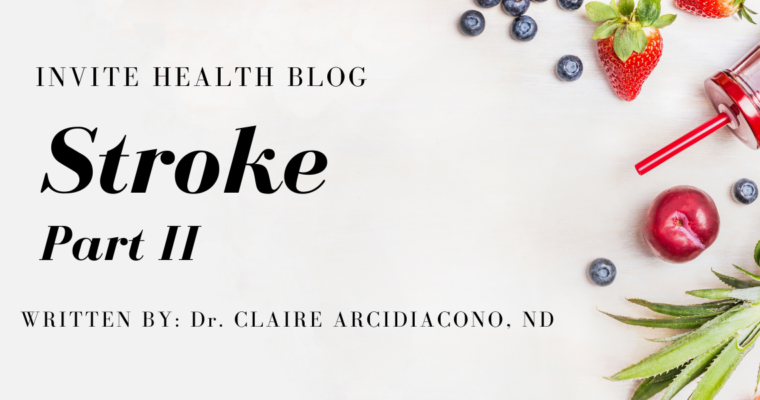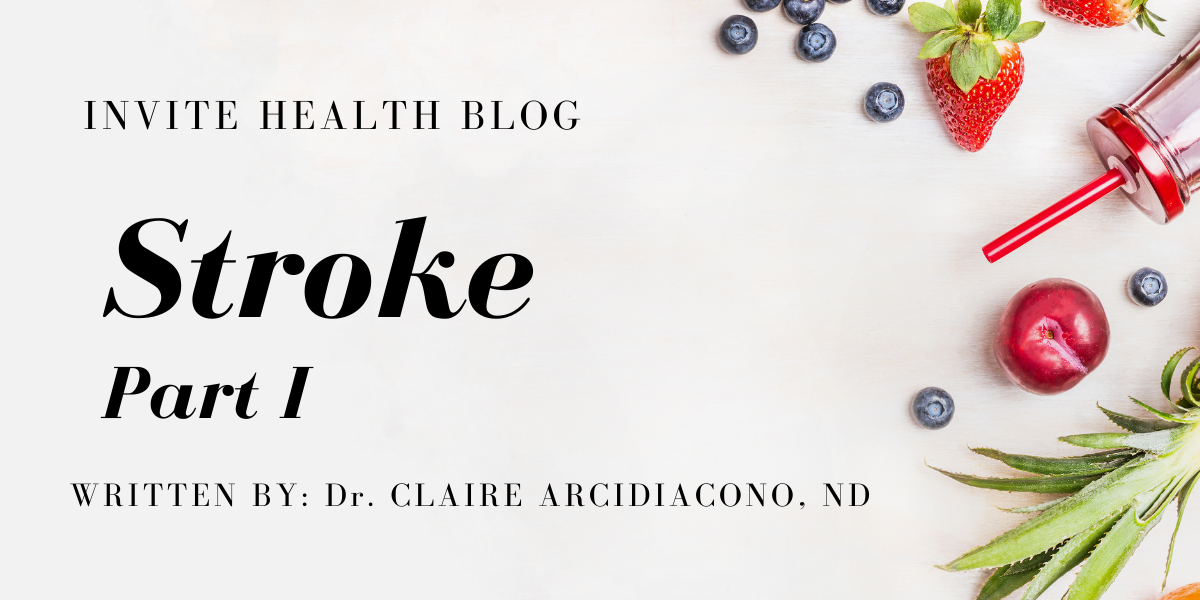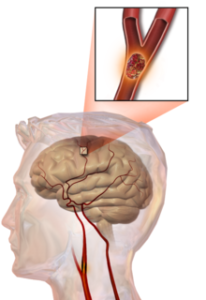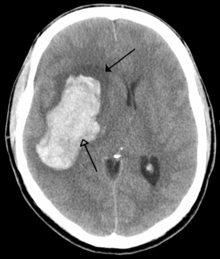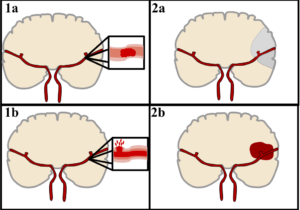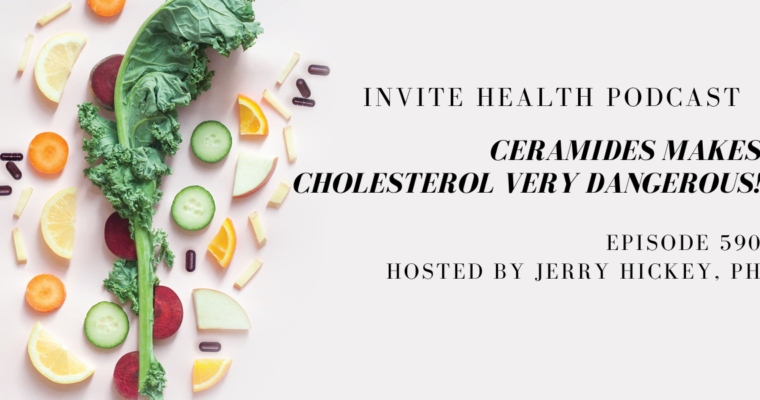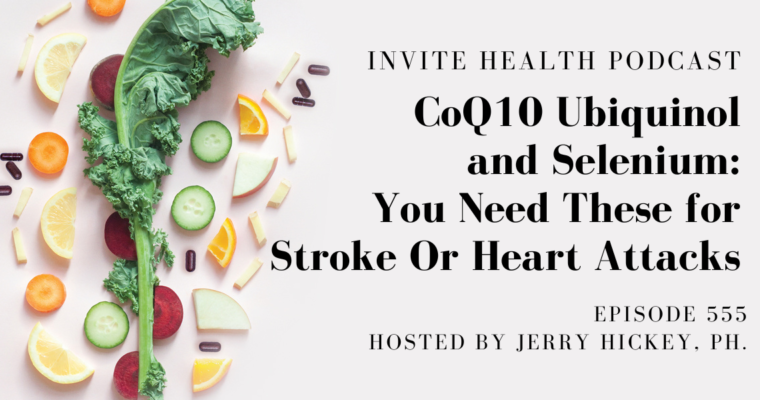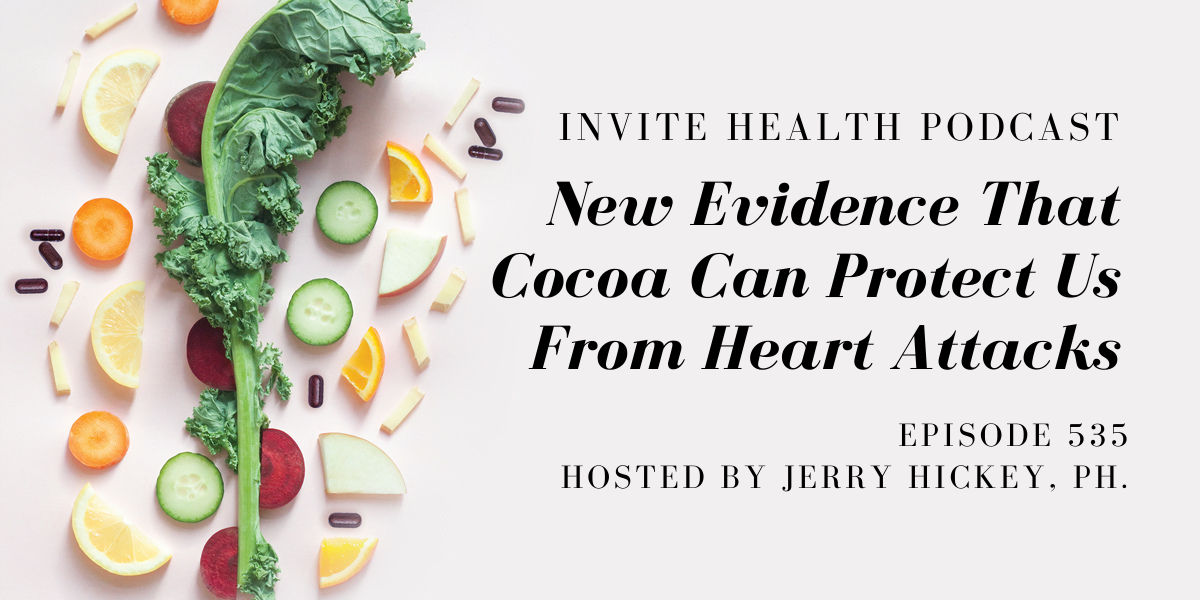cocoa
Subscribe Today!
Please see below for a complete transcript of this episode.
New Evidence That Cocoa Can Protect Us From Heart Attacks – InViteⓇ Health Podcast, Episode 535
Hosted by Jerry Hickey, Ph.
*Intro music*
InViteⓇ Health Podcast Intro: Welcome to the InViteⓇ Health Podcast, where our degreed healthcare professionals are excited to offer you the most important health and wellness information you need to make informed choices about your health. You can learn more about the products discussed in each of these episodes and all that InViteⓇ Health has to offer at www.invitehealth.com/podcast. First time customers can use promo code PODCAST at checkout for an additional 15% off your first purchase. Let’s get started!
*Intro music*
Jerry Hickey, Ph.:
[00:00:40] There’s very new and very exciting and very good evidence that cocoa helps protect us from suffering with a heart attack. I mean, there’s not many things that are as scary as a heart attack. And God forbid, you had a heart attack, cocoa helps keep you alive. So it’s really worth having your cocoa and you really don’t have to have it every day. Cocoa contains a hierarchy of really good ingredients. By the way, cocoa, the funny chemistry to cocoa, there’s over 800 ingredients in cocoa that have been isolated so far. Things like polyphenols, carotenoids, amino acids. None of them taste like cocoa. It’s the combination of these ingredients that gives you that wonderful cocoa flavor.† [00:01:24]
[00:01:25] What about dark chocolate? There is evidence that dark chocolate could be healthy. The problem is too much dark chocolate, you’re getting a lot of milk fat, you’re giving a lot of sugar, and then it prevents the good effects of the cocoa. Plus… so you really want cocoa. You really want cocoa. Plus, when they Dutch the cocoa and they add the milk fat and the sugars, it destroys many of the ingredients that are very healthy. So it’s kind of like hit or miss. If you get a dark chocolate that’s even 70% cocoa, you don’t know if these ingredients have survived the processing thing, so you really want cocoa.† [00:02:00]
[00:02:03] So there’s a lot of evidence now that cocoa is extremely healthy. One, there’s a number of good, high-quality studies, well-powered. Well-powered means there’s plenty of people, plenty of times, plenty of time involved and it’s a well-designed study. Well-powered studies showing cocoa reduces the risk of developing diabetes, like the Maine-Syracuse study. And then there’s studies showing that cocoa is great for the brain. Many studies that cocoa is beneficial to your memory and your mood. There’s a number of studies that cocoa is great for reducing generalized inflammation. You never want generalized long term, low level inflammation. It’s very bad. It’s dangerous over time.† [00:02:49]
[00:02:50] But there’s a lot of good information that cocoa is great for the heart. It helps your circulation in general. It reduces heart inflammation. It helps support circulation to the heart. It lowers the risk of a heart attack. And God forbid you had a heart attack, like I said before, it keeps you alive. So, hi, my name is Jerry Hickey. I’m a licensed pharmacist specializing in nutrition, which I’ve studied for many, many decades. Welcome to my episode: New and Exciting Evidence That Cocoa Protects Us from Suffering a Heart Attack. You can find all of the InViteⓇ podcast episodes for free wherever you listen to podcasts, or please go to invitehealth.com/podcast. And please subscribe and leave us a review. You can also find us on Instagram, Twitter and Facebook @invitehealth. So let’s go in with this.† [00:03:37]
GRAPE SEED FOR HEALTHY CIRCULATION – INVITE HEALTH PODCAST, EPISODE 22. Listen Now>>
[00:03:38] Cocoa has many fine ingredients. Collectively, they, they, they’re very healthy. So there’s, for the brain, there’s flavan-3-ols that supports circulation to the brain. There’s phenylethylamine that calms the brain down and salsolinol. There’s many, many things in cocoa that are good for your brain.† [00:03:58]
[00:04:00] What about the heart? Let’s get into some… Oh, let’s get into the new data. Let’s get into the new data. This is… So now I’m going to go into evidence from research that cocoa helps protect us from a heart attack. So this is the American Journal of Clinical Nutrition, which is a great journal. Very serious people are involved with this journal. And it’s the Cosmo study and its Brigham and Women’s Hospital up in Boston, which is an affiliate of Harvard Medical School and Harvard School of Public Health. Now, these are all older adults. Over 21,000 older adults followed for 3.6 years. So this is a great study. It’s a well-designed study. It’s a well-reported study. It’s a non-biased study. There’s plenty of people, there’s plenty of time. So it’s 21,442 older adults. They’re split into four groups. One group received cocoa and a multivitamin. The second group received cocoa and a placebo. Placebo, we used to call it a sugar pill. It’s a fake pill. It’s an innocuous pill. Doesn’t help you, doesn’t hurt you. The third… So cocoa and placebo, a multivitamin and a placebo or two placebos only for 3.6 years. Now, interestingly, even smokers had a reduction in the number of heart attacks, strokes or the need for revascularization procedures, you know, if their arteries were clogged that they need their arteries reopened. So even smokers. That doesn’t give you a license to smoke, I have to say that, but that’s how powerful cocoa was. In cancer patients, there was a 39% reduction in deaths from cardiovascular disease in cancer patients. But in all the patients, they were seeing a reduction in total cardiovascular events, such as a stroke or heart attack, dying from a heart attack, needing heart surgery, some sort of heart surgery. So the cocoa in this brand new study, this is great evidence. This is powerful evidence. Cocoa. And you didn’t have to have it every day. I mean, even having cocoa twice a week is protective for the heart. So having a real cocoa, reduced heart-related deaths, cardiovascular-disease related deaths. It reduced strokes and reduced heart attacks. It reduced the need for cardiovascular revascular, coronary, excuse me, coronary revascularization. It kept the card, carotid arteries clean. The carotid arteries are the arteries that supply your, your head, your face, your brain blood. It was preventing the need for a peripheral artery surgery, you know, like the arteries in the legs. It was preventing unstable angina, which is a killer. Angina, you know, you get the chest pain. So it really meant something.† [00:07:22]

[00:07:23] Now there’s other studies. I’m not just going to mention one study here. There’s other studies pointing at the evidence, in fact, illustrating the evidence that cocoa protects us from heart attacks and heart disease. In a different study published in the American Journal of Clinical Nutrition, it was veterans in the Boston Veterans Administration system. So it was researchers up in Boston, but also researchers in Atlanta and a VA in Atlanta. And they were looking at cocoa and its flavonoids, its flavanols, they’re flavan-3-ols. And regularly consumed, they reduced the risk of cardio, cardiovascular disease and coronary artery disease by up to 12% in this group of veterans. Now, I did some work in the VA system in Manhattan on the east side in the 20s, I think it’s 23rd Street. It was decades and decades ago. It’s about 23rd and 1st Avenue over there in the Lower East Side of Manhattan. And I have to tell you that a lot of veterans who wind up in the VA hospital system, they’re very unhealthy. They have diabetes, they have high blood pressure. They don’t do well. Now, this was 188,000 veterans, slightly over 188,000 veterans, typically 64 years of age. 90% of them were men. The cocoa decreased the incidence of fatal coronary artery disease events by up to 20%. So that would be a heart attack or some strange arrhythmia.† [00:09:13]
[00:09:15] Then there’s the Zutphen Elderly Study in the Netherlands. It was 25 years long, large study. Having cocoa reduced the risk of developing cardiovascular disease and it reduced the risk of dying from cardiovascular disease by 38%, by 38%. Now, these people typically had a half a teaspoon of cocoa a day. So there’s clear evidence that cocoa lowers the risk of a heart attack, lowers the risk of heart disease and keeps us alive.† [00:09:53]
[00:09:54] This was like the coolest study of all. This was the Stockholm heart study, you know, in Stockholm, Sweden. It’s the Karolinska Institute. That’s in Stockholm. The Karolinska Institute is kind of like our Tufts University and Beth Israel Deaconess Medical Center up in Boston and Uppsala University in Sweden. Uppsala University does a lot of topnotch research. It’s 1169 patients who were hospitalized for their very first heart attack. 1169 patients who survived their first heart attack. Cocoa prevented them from dying from a future heart attack. It’s a well-powered study, plenty of heart attack survivors. It’s over an eight-year period. And there is a, that’s powerful evidence because it’s, it’s quantitative. The more frequently they had cocoa, the lower their risk of dying from a future heart attack. So let me say this. Who’s the person most at risk of having a heart attack? Someone who already had a heart attack. It’s like having an asthma attack. Who’s going to have an asthma attack? Someone who already had an asthma attack. Or a migraine headache. Migraine headaches are vicious. Who’s the person most likely to have a migraine headache? Somebody who has a history of migraine headaches. So it’s the same thing with a heart attack or a stroke or other serious illnesses. So there’s a quantitative relationship. The more frequently they had cocoa, the greater they were protected from dying from a second heart attack. So cocoa just once per month prevented them from dying from a future heart attack by 27%. But listen to this. Cocoa just once a week, real cocoa, prevented them from dying from a future heart attack by 44% and having cocoa twice a week or more, this is powerful, prevented them from dying from a future heart attack by 66%. That’s basically better than many drugs. I’m not saying not to take the drugs. I mean, if you have high blood pressure, you have to treat high blood pressure. It’s a serious, dangerous thing. I’m not saying not to treat your cholesterol, etc., but I’m saying you should add cocoa.† [00:12:12]
[00:12:15] They’ve shown that cocoa improves the Framingham risk score. You could go into the Internet and type in Framingham risk score. The Framingham studies are very famous ongoing studies, and you type in certain risk factors, like is your blood pressure under control? How’s your cholesterol? Do you smoke? And they predict based on this and it’s a pretty good prediction, your risk of having a massive heart attack or stroke or dying from heart disease over the next ten years. And they’ve shown in human clinical trials that when you give people cocoa, you improve the Framingham risk score. I mean, come on. So there’s different types of polyphenols. Polyphenols are powerful antioxidants in cocoa. So there’s catechins. And, you know, there’s catechins in grapeseed, there’s catechins in green tea, there’s catechins in cocoa, but they’re not the same balance of catechins. So in other words, in cocoa, certain catechins are much richer in content. In green tea, there’s others like EGCG, which is amazing because that one has been shown to reduce the risk of infections and heart disease, but also cancers.† [00:13:30]
CHOLESTEROL-LOWERING STATIN DRUGS AND NUTRITIONAL SUPPLEMENTS – INVITE HEALTH PODCAST, EPISODE 441. Listen Now>>
[00:13:33] So in cocoa… The University of Dusseldorf at the University of Surrey, that’s in England. University of Dusseldorf, of course, is Germany. They published their findings in the American Journal of Clinical Nutrition. When they gave healthy young men cocoa, they found that certain constituents improved blood flow to the heart, where other ingredients reduced blood fat levels like triglycerides and cholesterol. So there’s a lot to cocoa. A lot to cocoa. Do I recommend cocoa? I’m a user. I’m a cocoa lover. I like to put in yogurt. I like to put it in water. I don’t mix it in milk. There’s some evidence that regular cow’s milk binds up the ingredients in cocoa and weakens their effects. There’s not enough evidence to prove that it’s real, but you don’t need the milk in the cocoa. You can just do it in water, so why mess around?† [00:14:26]
[00:14:28] So in any event, I want to thank you for listening to today’s episode. You can find all of our episodes for free wherever you listen to podcasts or go to invitehealth.com/podcast. And please subscribe and leave us a review. You can also find us on Instagram, Twitter and Facebook @invitehealth. Once again, thank you for listening to today’s podcast episode. Jerry Hickey signing off.† [00:14:28]
*Exit music*


